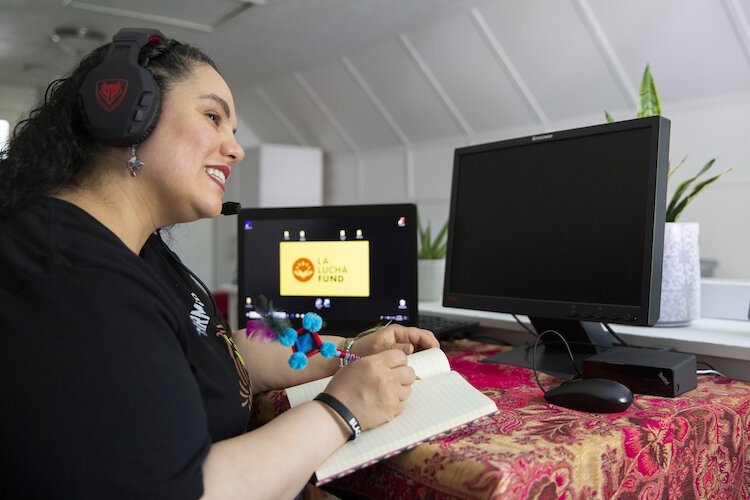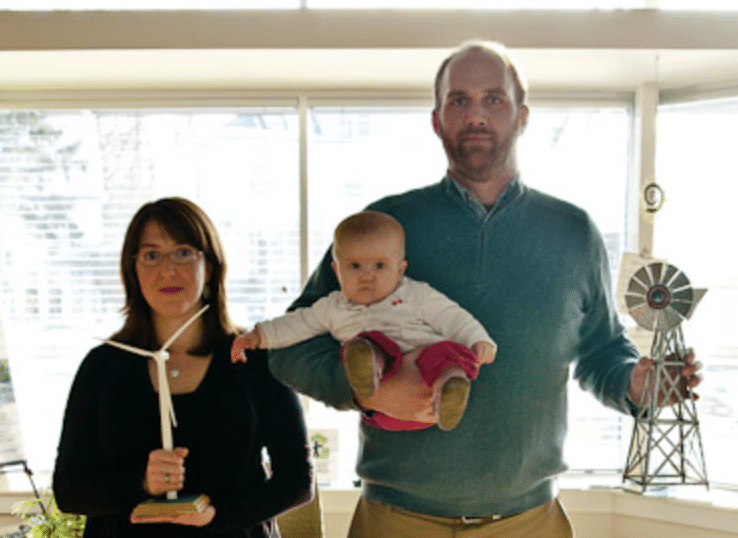Kent District Library addresses internet access disparities with mobile hot spots and more
As COVID-19 impacted all facets of face-to-face interactions, appointments and education, the Kent District Library has implemented resources to provide fair access to high-speed, quality internet. Through WiFi mobile hot spots, computers, iPads, and more available for checkout, local residents can access digital resources for free.
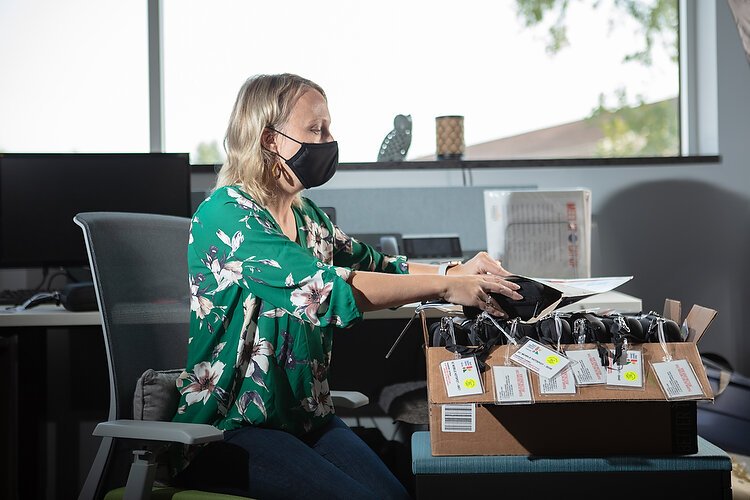
Internet access is a vital aspect for working from home, virtual learning, teaching, and telehealth appointments; yet access to such is not always available. For some families, it’s simply not an option. Whether service is out of budget or out of range, not everyone has viable access to the internet and the many digital resources it provides. Local libraries across the Kent District Library (KDL) system are working hard to bridge that gap and address the internet disparity with free resources for patrons and community members.
When the library was forced to close its doors to the public in March 2020, the first thing the library did was look at the budget and adjust accordingly, says Angela Culp, regional manager of the Kentwood and Gaines Township branches of the KDL.
“One of the major things we did is we took some of the money we had budgeted for our collection and put it into buying 800 more hot spots,” Culp says. “We already had a program where we circulated hot spots from our more rural branches.”
People can visit a branch, place a hold on a hot spot to check out, and the internet usage is paid for by the library. Patrons can use their smartphone, iPad or computer either at home or on-the-go with the small hot spot device. Given the extended demands of virtual learning, Culp says the library extended the checkout times for the hot spots to enable more people to have internet access.
“It used to be three weeks, but with so many people going virtual, we changed with the addition of all these new hot spots, to a four-month checkout. Students who are working virtually would have internet available to them and, because it works for the entire household, their parents who might be working at home would also have [access].”
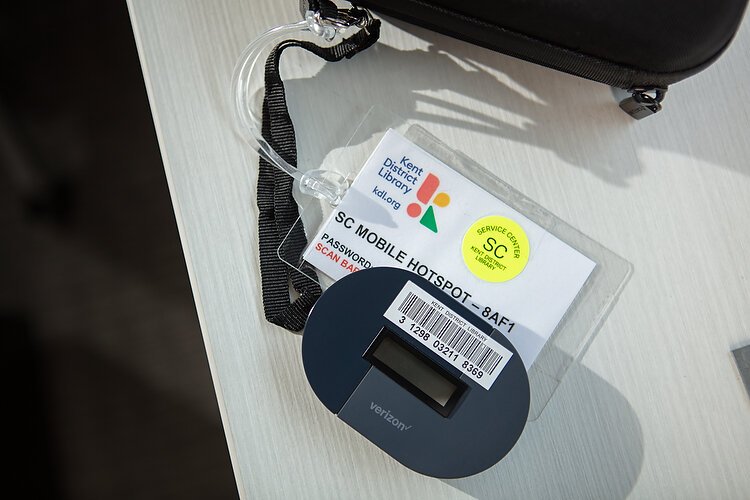
Over the summer, KDL issued additional hot spots as the demand grew. According to KDL Wi-Fi Mobile Hot Spot feedback surveys, “27% of our population say that internet services are too costly.” Data also showed that borrowers used their devices at their parent’s home, on vacation, while camping, and more. For 26.74% of users, these mobile hot spots aided those who could not otherwise afford costly internet services. For many hot spot borrowers, the devices are being used for more than three hours a day.
From failing grades to missed appointments, a lack of reliable internet not only causes frustration, but deepens the digital divide. This divide often impacts low-income residents and can pave the way for unfortunate inequities in already vulnerable populations. According to CNN, nearly 15% of households in America do not have a home internet provider (dial-up, broadband, or cellular data plan) as noted in a 2018 U.S. Census. For low-income earners, that percentage is more than double the national average.
Long before the pandemic, Culp and other library staff witnessed the need for the internet daily with patrons coming into the library to utilize the computers, scanners and fax machines. Since these services were shelved for a while at the height of the pandemic, the library found a way to continue assisting families, though not directly within their centers. With the additional hot spots available in circulation for curbside checkout, KDL also offers circulating iPads at every branch. In case someone does not have a smartphone or laptop at home, they can check out additional devices to use their hot spot for internet access. Early in the pandemic, the library also removed due dates to minimize monetary stress from overdue fees.
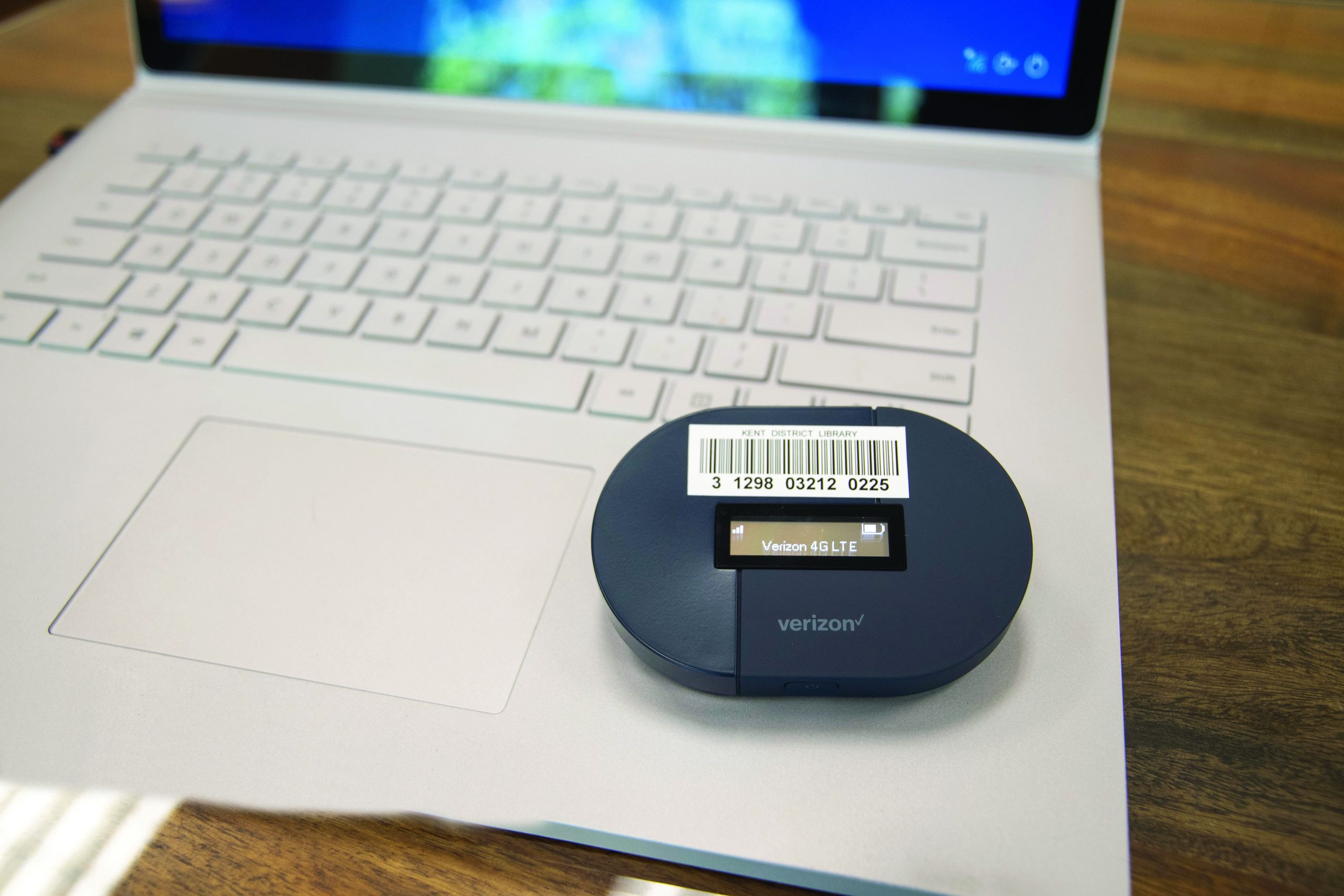
Culp says KDL is also working on additional device rental options to improve technology at home. “We’re working on a Chromebook option, so [patrons] can check out an overnight laptop along with a hot spot, but we have to make sure we have all of the instructions together so that people have how to connect to the hot spot written down there before we can offer that.”
KDL’s website features an entire page of online technology resources, including online database Lynda.com, which includes more than 3,000 courses and over 130,000 videos on various subjects such as Microsoft Office, web development and multimedia. Another free resource is the Goodwill Community Foundation Global (GCFGlobal), which helps users of all ages, from seniors learning computer basics to young students learning math skills. Of course, if patrons do not feel comfortable accessing these tools, KDL also offers the most basic first step — one-on-one tech tutoring available at several branches. Tech tutoring appointments can be scheduled at a branch or by calling 616-784-2007.
These virtual hot spots also enable users to read e-books, something Culp says is another popular service KDL offers. “During the pandemic, when the libraries weren’t open to the public, [patrons] never stopped being online,” she says. “All of our programs went virtual. All of our story times were streamed and are still being streamed for anybody. You don’t have to have a library card to log in and watch it.”
“In addition, anybody who has a KDL card can log in and get e-books 24/7 anywhere they can download it from the internet, and can read it on their smartphone, tablet, e-reader or computer at home. That has been huge. We’ve seen an increase in that,” she says.
Though libraries are known for their shelves of classic literature, manuals and autobiographies, Culp says today’s library offers so much more than people realize. With basic Netflix or Hulu accounts ranging from $5.99 to $17.99 each month, KDL offers free streaming of many of the same TV shows and movies. Hoopla and Overdrive offer entertainment streaming and e-books as well as audiobooks to patrons.
Literacy Matters is a series focused on the importance of knowledge, community resources seeking to remove barriers to access, and the value of our library systems to society. Literacy Matters is supported by Kent District Library.
Photos courtesy Kristina Bird and Kent District Library
Sarah briefly lived in Grand Rapids years ago, before moving back to Lansing, but that West Michigan love never really left her heart. Through her coverage on small businesses, arts and culture, dining, and anything mitten-made, she’s committed to convincing any and everyone — just how great the Great Lakes state is. Sarah received her degrees in Journalism and Professional Communications. You can find her in a record shop, a local concert, or eating one too many desserts at a bakery. If by chance, she’s not at any of those places, you can contact her at spohn9@gmail.com


